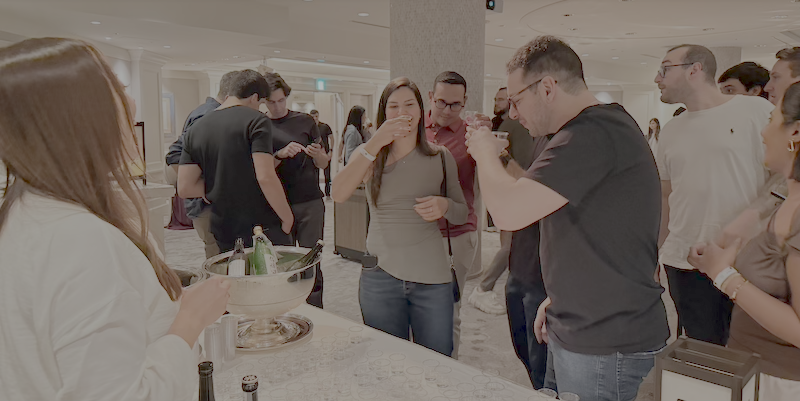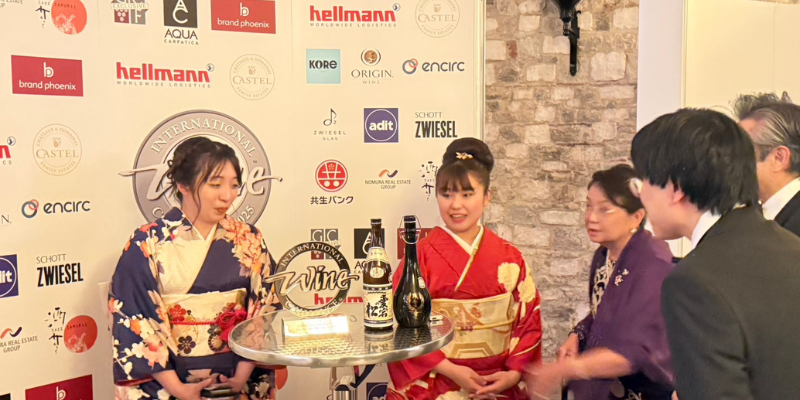This blog post covers three recent partnerships and initiatives in the Japanese sake industry, led by large industry players.
The first is a partnership between Hakkaisan Brewery, a Niigata-based brewery, and Brooklyn Kura, a NYC-based brewery, which aims to combine traditional Japanese brewing techniques with American brewing innovation. The second is a partnership and fundraising round for sake startup WAKAZE and one of Japan's leading sake companies, Takara Shuzo, which aims to develop new sake products and technologies for the global market. And the third is a plan by Dassai (Asahi Shuzo), the world-famous sake producer, to build new production facilities in upstate New York to produce high-quality, locally-inspired sake.
Partnership between Hakkaisan Brewery and Brooklyn Kura
Hakkaisan Brewery, a Niigata-based sake producer, announced on December 2021 a partnership with Brooklyn Kura, a NYC-based sake producer. The conditions and terms of this partnership were not disclosed. The partnership will involve the two breweries sharing brewing techniques and ingredients to create unique collaborative sakes. The collaboration will also involve the exchange of brewers between the two breweries to further the sharing of knowledge and skills. The partnership aims to combine the traditional brewing techniques of Japan with the creativity and innovation of the American sake scene.

Main Business Alliance Details
- Enhancement of consumer awareness of sake production and fermentation process
- Expansion of business in the U.S. to expand production and sales, maintain and improve sake quality, and ensure a stable supply
- Establishment of a sales department to support both brands and the development of sales channels
Joint development of sake, craft beer, spirits, fermented foods, etc.
The business alliance aims to enhance consumer awareness of sake production and fermentation, expand business in the U.S. market, establish a sales department and develop new sales channels, and jointly develop new fermented products such as craft beer, spirits, and fermented foods. The goal is to expand production and sales, maintain and improve sake quality, and ensure a stable supply of high-quality products in the U.S. market.
WAKAZE's Fundraising Round and Partnership with Takara Shuzo
Sake brewing startup Wakaze has raised $7.5 million in a series B funding round led by Jafco Group, with participation from Takara Holdings, DBJ Capital, Egg Forward, SMBC Venture Capital, and an unnamed angel investor. This brings the company's total funding to date to $11.3 million. Wakaze plans to use the funds to expand its business in Europe, the U.S., and the Asian region, particularly China, by increasing advertising, establishing an office and hiring personnel in the U.S., and expanding production facilities in France.

Takara Holdings, a major alcohol producer based in Kyoto, Japan and known for its sparkling sake brand "Mio", announced on January 11, 2023, that it has invested 5 billion yen (approximately $46 million) in Wakaze, a sake brewing startup based in Tsuruoka, Yamagata. The partnership aims to expand the production and promotion of new sake products in the US and Asia, specifically in China. The two companies will work together to develop new products, utilizing Wakaze's innovative approach and Takara Holding's resources and experience. The partnership also includes the production of Wakaze's sake products at Takara's US subsidiary's manufacturing facility, with the potential for further expansion efforts in China. The ultimate goal is to bring the craft sake trend and direct-to-consumer approach to the global sake market.
Dassai's New Sake Production Facilities in Upstate New York
Dassai, a Japanese sake producer, has announced plans to build new production facilities in upstate New York. The new facilities, which are expected to cost around 7 billion yen ($53 million), will be located near the American-Canadian border and will be used to produce high-quality Japanese sake using locally-grown rice and water. The aim of the new production facilities is to produce sake that is uniquely suited to the local palate and market. Dassai will use its traditional brewing techniques and expertise, along with locally-sourced ingredients, to create a new sake that is both authentic and locally inspired. The project is expected to be completed in spring 2023.

The new sake production facility will be located 150km north of New York City, in Hyde Park. It will be operated by six locally hired workers and three experienced staff from Japan. The facility will include 52 5,000-liter tanks, using Yamada-Nishiki rice, specifically grown for sake brewing in Japan and Arkansas. The start of the brewery's operations was delayed by three years due to the COVID-19 pandemic and the initial annual production target is 70,000 1.8-liter bottles, with plans to increase the capacity tenfold in about 10 years.
Asahi Shuzo has chosen to establish this new production facility in upstate New York due to the region's cultural diversity and the presence of the renowned Culinary Institute of America in Hyde Park. The company's CEO believes that this location will provide opportunities to create new things and promote them to the world, as well as access to experts in the field who can help them to reach Americans and explore new ways of promotion. He also mentions that the company will need to talk to people other than distributors of Japanese foods and explore new ways of promotion, as a closer approach to Americans will be necessary.
Dassai is introducing a new brand of sake called "Dassai Blue", which is different from the classic “Dassai” brand. This new brand is of the highest-graded sake, Junmai Daiginjo, and is expected to surpass the existing Dassai brand. The brand name "Dassai Blue" comes from a Japanese proverb (literally translated as “Although blue dye comes from the indigo plant, it is bluer than indigo”), meaning to strive for something even better than the best.
Conclusion
The sake industry in Japan is currently experiencing growth and expansion, both domestically and internationally. The partnerships and initiatives discussed in this blog demonstrate the efforts of large, established sake producers to expand their reach and adapt to the growing global market for Japanese sake.
Hakkaisan Brewery's partnership with Brooklyn Kura is an example of how traditional Japanese brewing techniques can be combined with the innovation and experimentation of the American brewing scene. The collaboration aims to create unique and distinctive beers that will appeal to both Japanese and American audiences.
The partnership and fundraising round for sake start-up WAKAZE and Takara Shuzo shows the potential for established players in the industry to collaborate with and support newer innovative companies. This partnership aims to develop new sake products and technologies that will meet the demands of the growing global market for Japanese sake, and help establish WAKAZE as a leading player in this market.
Dassai's plan to build new production facilities in upstate New York is an example of how Japanese sake producers are looking to expand their reach and adapt to local markets. By using locally-sourced ingredients and producing sake that is tailored to the local palate, Dassai hopes to introduce more Americans to the joys of Japanese sake and promote the sake culture.
Overall, the sake industry in Japan is showing a clear trend towards expansion and adaptation, both in terms of partnerships with other players in the market and in terms of building new production facilities and reaching new markets. It is likely that we will see more and more large Japanese sake producers following the same path and expanding their reach globally in the coming years.







